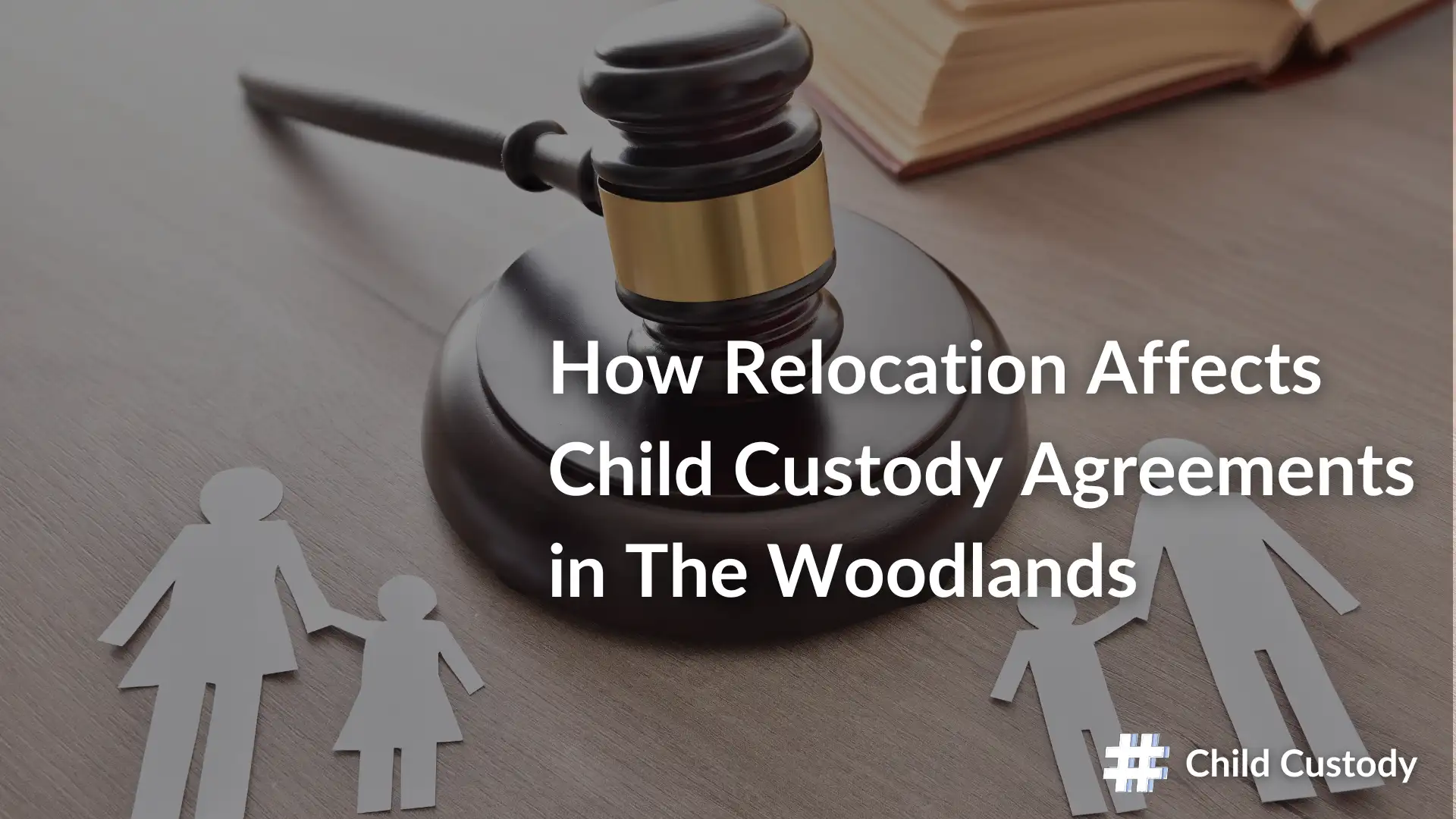
If you’re considering relocating, or if your child’s other parent is planning a move, it’s a good idea to understand how that can affect your custody agreement, especially in The Woodlands. Judges consider many factors before approving a move, and understanding the ins and outs of child relocation & legal concerns can make a big difference in how your case is decided.
What Are Relocation Laws in Child Custody Cases?
In Texas, if the parent with primary custody wants to move, especially outside the area covered by a geographic restriction, they’ll have to take it to court. Since relocation changes the current setup, it’s treated as a custody modification—especially important in joint custody situations where both parents share time and decision-making responsibilities.
Geographic restrictions are usually built into the original custody order and often limit the child’s residence to a specific county, like Montgomery or Harris County. The idea is to keep both parents actively involved. If one parent wants to move outside that zone, they’ll have to convince the court that the move is genuinely in the interests of the child, not just what works better for them.
How Relocation Affects Custody Agreements
Relocation can seriously affect the non-moving parent’s time with the child, travel logistics, and the child’s bond with both parents. Because of that, courts don’t just rubber-stamp these requests. They look at several different factors before making a decision.
They’ll start by asking why the parent wants to move. A job opportunity or escaping a harmful situation usually holds more weight than a move based on personal preference. The court also looks at how the move could impact the child, things like school stability, emotional development, and social life. If both parents currently share close to equal time, the court may see relocation as too disruptive.
Judges also consider whether the move would make it harder for the other parent to stay involved. This is an essential consideration in custody relocation cases. Sometimes, the court will consider whether alternative visitation schedules—like extended school breaks or regular video calls—can maintain a strong parent-child bond, unless an emergency custody order is needed to protect the child’s well-being.
Under Texas Family Code § 156.101, a judge can approve a relocation by modifying the custody order, but only if it benefits the child. That’s a rigid bar, especially if the other parent pushes back.
Steps to Take Before Relocating

Your first step should be talking it through with the other parent. If you’re both on the same page and can update the parenting plan together, that makes things much easier. Just make sure you put the agreement in writing and get it court-approved.
Please read more about the parent and child relationship here: Study finds relationship between children of divorced parents and religion.
If you know there will be a disagreement, you must file a petition to modify the custody order. A judge will closely examine your situation and decide based on what’s best for your child. That means you’ll want to come prepared with solid reasons. These could include how the move would benefit your child’s schooling, emotional health, or overall stability.
Don’t sit on it if you’re the non-custodial parent and find out about a possible move your ex is planning. If the relocation might cut into your time with your child, you must submit a filing to the court to object.
Legal Support for Relocation and Custody Modifications
Custody modification cases tied to relocation can become complicated fast. Whether trying to move or hoping to stop a move that could affect your parenting time, an experienced family law attorney can help you protect your rights and your child’s well-being.
BB Law Group PLLC understands the local dynamics of The Woodlands and how Texas courts approach relocation laws in child custody cases. Our team knows what it takes to build a strong argument and guide you through each step of the legal process.
Talk to a Family Law Attorney in The Woodlands
Relocation and custody issues aren’t just legal matters—they’re personal. You need a lawyer who listens, prepares thoroughly, and keeps your child’s future front and center. If you’re facing a potential move or custody modification, BB Law Group PLLC is ready to help.
Contact us online to schedule a consultation. You can also call (832) 534-2589 to speak with someone directly.
Related Post
What Happens If a Non-Custodial Parent Refuses to Return a Child?
